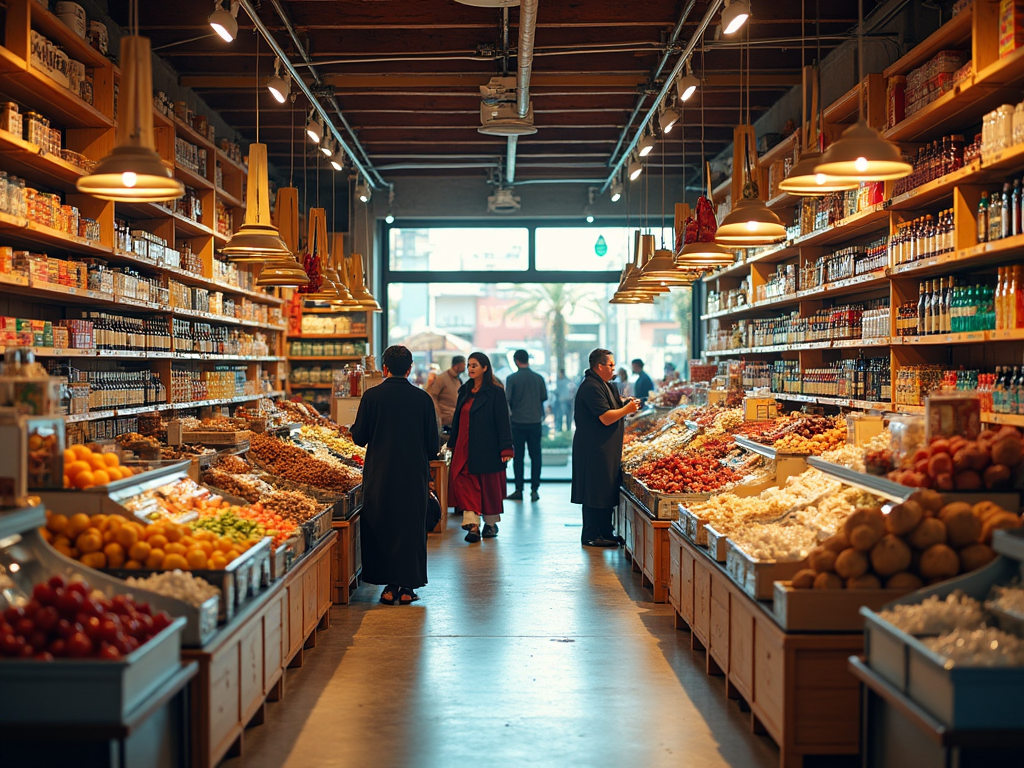
How To Open A Baqala in Dubai?
Opening a Baqala (a small grocery store) in Dubai can be a lucrative venture, particularly given the fast-paced urban lifestyle and the multicultural population. This article will guide you through the essential steps to successfully establish a Baqala in this vibrant city. From understanding the local market to navigating legal requirements, each step is crucial for the sustainability of your business. As you venture into this exciting opportunity, preparation and knowledge about the business landscape in Dubai will be your keys to success. Below we will explore how to set up a Baqala, considering essential aspects like licensing, location, and stock management.
Understanding the Market

Before diving into the operational aspects, it’s crucial to understand the market for a Baqala in Dubai. The city’s diverse population means a variety of products are in demand, from local goods to international brands. Researching the target audience will help in curating a product range that caters to their needs effectively. Here are some critical considerations:
- Demographics: Identify your customer base, such as expats or locals, and their shopping preferences.
- Competition: Analyze existing Baqala stores to identify gaps in the market that you can fill.
- Pricing Strategy: Create a competitive pricing model that considers both your costs and the local market.
- Location: Choose a location that is easily accessible and attracts foot traffic.
- Product Range: Select products that resonate with your audience, from everyday essentials to specialty items.
Legal Requirements for Opening a Baqala

To legally operate a Baqala in Dubai, you will need to fulfill certain legal requirements mandated by government authorities. This step ensures that your business adheres to local laws and regulations. Here’s a brief overview of the process:
- Trade License: Obtain a trade license from the Dubai Department of Economic Development (DED). This license is essential for any retail business.
- Commercial Lease: Secure a commercial lease agreement for your chosen retail space. It’s important to ensure that the location is designated for retail activities.
- Shop Permit: Apply for a shop permit from the municipality in your specific area.
- Food Safety License: If you plan to sell food items, comply with food safety regulations and obtain a relevant food handling certificate.
- Open a Bank Account: Establish a business bank account to facilitate transactions and manage finances.
Selecting the right location for your Baqala can greatly impact its success. You need to be strategic about where to set up your store to capture maximum foot traffic and visibility. Analyze various aspects of prospective locations:
- Neighborhood Dynamics: Ensure that the area has a good mix of residential and commercial properties.
- Accessibility: Look for locations that are easy for customers to access, whether by foot or vehicle.
- Proximity to Competitors: While being close to competitors can be beneficial, ensure there’s enough differentiation to attract customers to your Baqala.
- Safety and Security: Choose a location that is safe for your customers and your merchandise.
- Visibility: Higher visibility can lead to more spontaneous purchases, so consider storefront accessibility and signage opportunities.
Stock Management and Suppliers
Once your Baqala is set up and operational, effective stock management becomes foundational to your business viability. Proper inventory management helps to minimize waste and ensures that you are meeting customer demands efficiently. Supplying your Baqala with the right stock involves:
- Supplier Relationships: Build relationships with reliable suppliers who can provide quality products at competitive prices.
- Inventory Tracking: Implement an inventory management system to keep track of stock levels and automate reordering processes.
- Product Quality: Regularly check the quality of your products to ensure customer satisfaction and compliance with health standards.
- Seasonal Merchandise: Keep track of seasonal trends and adjust your inventory accordingly to attract sales during peak seasons.
- Customer Feedback: Gather feedback from clients about their shopping experience and product preferences to further refine stock choices.
Marketing Your Baqala
Launching your Baqala business is just the beginning; effectively marketing it is key to attracting and retaining customers. Consider implementing a mix of traditional and digital marketing strategies to enhance visibility and sales:
- Social Media Advertising: Use platforms like Instagram and Facebook to promote special offers and engage with your customer base.
- Loyalty Programs: Create rewards programs to encourage repeat business and foster customer loyalty.
- Community Involvement: Engage in local events and sponsor community activities to increase brand awareness.
- Promotions and Discounts: Offer discounts or promotional deals during opening and festive seasons to draw customers in.
- Quality Service: Train staff to provide excellent customer service which will lead to word-of-mouth marketing.
Conclusion
Opening a Baqala in Dubai can be a rewarding business opportunity if done correctly. Understanding the market, fulfilling legal requirements, selecting a prime location, managing stock effectively, and marketing your store will help ensure its success. With the right preparations and strategies, a Baqala can become a staple in the community and a profitable venture for the owner. Just remember, the key is to remain adaptable and responsive to customer needs in this fast-evolving marketplace.
Frequently Asked Questions
1. How much capital do I need to open a Baqala in Dubai?
Starting a Baqala can require anywhere from AED 100,000 to AED 300,000, depending on the size, location, and inventory of your store.
2. Are there specific permits required for selling food items?
Yes, you will need to acquire food safety licenses and permits from the relevant authorities to sell food products.
3. What types of products should I stock in my Baqala?
Focus on stocking essential groceries, beverages, snacks, local products, and popular international items that cater to your target demographic.
4. How can I promote my Baqala effectively?
Leverage social media, local advertising, community sponsorships, and loyalty programs to increase visibility and customer retention.
5. Is it necessary to have staff at my Baqala?
While it is possible to operate a Baqala alone, having trained staff can enhance customer service and manage daily operations effectively.


